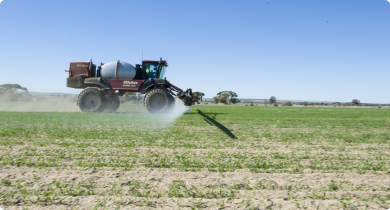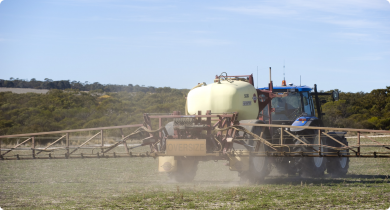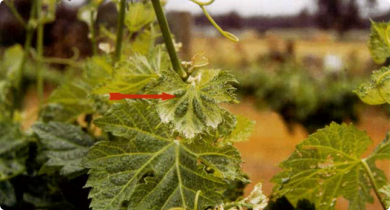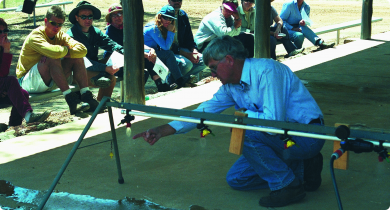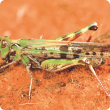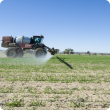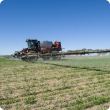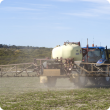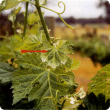Residues in crops
Some of the world’s safest grains, fruit and vegetable products are produced here in Western Australia (WA). Approved crop protection products or pesticides are vital tools that help farmers grow high yielding healthy crops to maximise sustainable food production.
The Department of Agriculture and Food, Western Australia (DAFWA) has legislation to ensure grain, fruit and vegetable products have pesticide residues that do not exceed those set by the Australian Pesticide and Veterinary Medicines Authority. These regulations safeguard people, animals, and the environment, and help to maintain access to overseas markets.
Residues may occur when chemicals are sprayed on a plant, but surveys show that the vast majority of foods do not exceed the Maximum Residue Limit (MRL). MRLs are set to ensure Australian farmers comply with pesticide application and use laws. Exceeding an MRL does not imply that a particular food is harmful. Every year in Australia over 6000 grain, fruit and vegetable samples are tested for residues by the National Residue Survey (NRS). DAFWA assists with investigations for residue detections over the MRL. The 2012/13 NRS results showed there was between 99.2% and 99.8% compliance with the relevant MRLs. This very high level of residue compliance supports the claim that Australian farmers comply with pesticide use laws and produce some of the world’s safest grain, fruit and vegetable products.
Articles
Filter by search
Filter by topic
- Herbicides (3) Apply Herbicides filter
- Pests (2) Apply Pests filter
- Residues in livestock (2) Apply Residues in livestock filter
- Biosecurity & quarantine (2) Apply Biosecurity & quarantine filter
- Insecticides (1) Apply Insecticides filter
- Pest insects (1) Apply Pest insects filter
- Plant biosecurity (1) Apply Plant biosecurity filter
- Grains (1) Apply Grains filter
- Crops (1) Apply Crops filter
- Agribusiness Food & Trade (1) Apply Agribusiness Food & Trade filter
- Biosecurity (1) Apply Biosecurity filter
- Food & beverages (1) Apply Food & beverages filter
- Food safety (1) Apply Food safety filter

